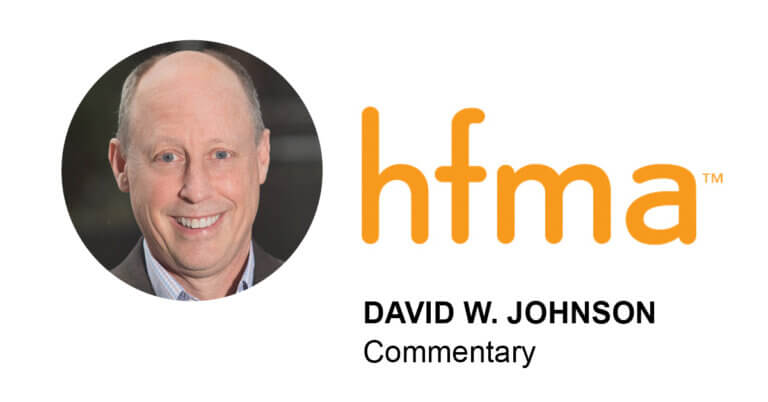April 13, 2020

Oh, hey. About that Accreditation Survey
Hospitals, health systems, medical practices, health plans, licensed clinicians and virtually every type of healthcare setting imaginable not only have to comply with countless state and federal regulations, they also have to meet countless accreditation and certification standards.
As I noted in a recent column, “How the COVID-19 Pandemic Is Dulling the Point of All Those Healthcare Regulations,” the coronavirus outbreak in the U.S. has shown that most of those state and federal regulations do anything but protect patients.
Then, a funny thing happened after I posted that column on LinkedIn. A lot of the people who opened that column up to read it were from healthcare accreditation organizations. Was I talking about them? No, but thanks to your interest in that column, I am now. Thank you for the idea!
There are dozens of private-sector organizations that accredit or certify healthcare facilities and services of all kinds for a hefty fee. The presumption, of course, is that if you meet an organization’s accreditation or certification standards, it means you provide effective and safe care to patients or give great service to members. But, how does meeting those standards help you perform during the unprecedented public health crisis that we’re experiencing now? I don’t know.
Maybe we could find the answer by checking on how some major healthcare accreditation organizations are responding to the COVID-19 pandemic.
✓ On March 13 (then updated March 24 and again April 3), the National Committee for Quality Assurance announced that it would go easy on health plans that seek accreditation from the NCQA. The group accredits more than 500 commercial health plans using standards based on its HEDIS performance measures and the Consumer Assessment of Health Plans Survey, or CAHPs, which the Agency for Healthcare Research and Quality created. NCQA vowed to be “flexible in scoring organization performance during the March–September time frame.” HEDIS uses 92 measures to evaluate plans in six areas: effectiveness of care; access and availability of care; experience of care; utilization and risk-adjusted utilization; health plan descriptive information; and measures collected using electronic clinical data systems. NCQA said it will not require plans to submit some measures, and it gave grace periods to plans to submit others. The NCQA also said it would not publish its annual health plan ratings in 2020. Under the ratings system, NCQA rates plans on a five-point scale (five being the highest) based on their HEDIS, accreditation and CAHPs scores.
✓ On March 17, the 800-pound gorilla of private healthcare accrediting agencies, The Joint Commission, announced that it was suspending “all regular, on-site surveys of hospitals and other health care organizations” effective March 16. The Joint Commission said: “At this time, The Joint Commission does not have an anticipated restart date. All postponed survey events will occur once normal operations are resumed. If any organizations go past their accreditation due date, accreditation will be extended without disruption to their accreditation status.” The Joint Commission accredits or certifies more than 22,000 healthcare organizations based on the organization’s standards. Accredited organizations include: hospitals; home health agencies; post-acute care facilities; behavioral health services; ambulatory care sites, including ambulatory surgery centers; and clinical laboratories. Certified services include cardiac, stroke, palliative and hip and knee replacement care and procedures.
✓ On March 31, under the banner headline “Patient Care Comes First!!,” URAC, originally known as the Utilization Review Accreditation Commission, announced that it was suspending all accreditation and certification on-site surveys through April 24. Instead, URAC will do its validation reviews virtually or reschedule them if they can’t be done online. URAC offers accreditation programs for everything from health plans to disease management programs to specialty pharmacies to accountable care organizations. URAC said accredited organizations that fail to comply with some of its standards during the COVID-19 outbreak won’t lose their accreditation as long as they fill out and submit a form that documents “any temporary instances of non-compliance with a program standard and the resolution.”
✓ On April 1, the Accreditation Association for Ambulatory Health Care announced that it was postponing all surveys “with exception to those organizations with identified Immediate Jeopardy, Infection Control deficiencies or other deficiencies resulting in heightened safety risk to patients and employees, and Initial and Early Option (EOS) surveys.” The AAAHC said: “Once normal operations resume across the country, AAAHC will schedule surveys through a ‘catch-up’ process.” The AAAHC accredits more than 6,100 ambulatory care facilities of all kinds, including ASCs, birthing centers, community health centers, and urgent- and immediate-care facilities and retail health clinics.
What the NCQA, Joint Commission, URAC, AAHC and other healthcare accrediting bodies are saying is you don’t have to follow their rules right now or prove to them that you’re following their rules right now because you have a lot on your plate—like saving patients’ lives and saving the lives of frontline caregivers who are trying to save patients’ lives.
Now, you could argue that those same rules are helping hospitals, doctors, nurses and other caregivers deal with the COVID-19 outbreak right now. Or, you could argue that all those same rules are proving to be fairly useless if not a hindrance as sick and dying patients overwhelm the health system.
When this is all over, someone will need to have that discussion.
Thanks for reading.
Stay home. Stay safe. Stay alive.





